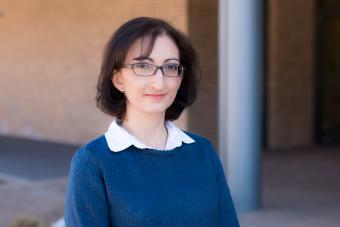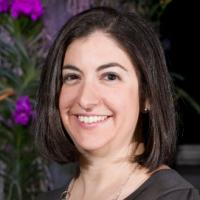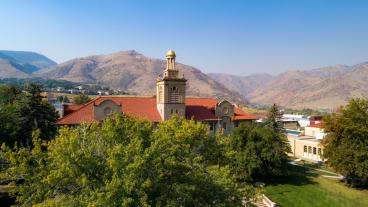Mines professor part of team using supercomputing, big data to answer seismology’s biggest questions

A Colorado School of Mines assistant professor is one of the five principal investigators of a $3.2 million research project over four years that will unite seismic data analysis and modeling with supercomputing power to answer some of the biggest questions about Earth’s seismic activity, interior, and dynamics.
Funded by the National Science Foundation’s Office of Advanced Cyberstructure, the Seismic Computational Platform for Empowering Discovery, or SCOPED, hopes to take the information collected from seismic waves and address large-scale computational and big data challenges in seismology.
A large amount of data can be collected from different seismic waves, which occur from natural events (like earthquakes, volcanic eruptions, avalanches, or atmospheric and oceanic activities) or human-caused incidents (like nuclear explosions). Being able to analyze large data volumes and numerically model them requires high-performance computing.
“The goal of this project is to build a cyberinfrastructure that can facilitate high-performance and cloud computing-based research of seismic data,” said Ebru Bozdag, assistant professor of geophysics at Mines. “SCOPED will provide fast access to a suite of open-source tools that allow for big data analysis, machine learning, high-performance seismic wave simulations and imaging. By figuring out how to efficiently process, numerically simulate and then interpret large amounts of seismic data, we can hopefully better understand the Earth’s interior and time-dependent dynamics, how it has changed over time and how it may change in the future over geological and human time scales.”
Bozdag’s research focuses on computational seismology. More specifically, Bozdag uses 3D numerical seismic wave simulations and heterogeneous data sets to improve seismic models of Earth’s interior from surface to the core to ultimately understand the structure and composition and how the inner dynamics of our planet work.
“We have to address computational and big data challenges in seismology to be able to better harness the ever-increasing high-quality seismic data and available computational resources,” Bozdag said. “Easy access to data, high-performance and Cloud computing as well as essential computational tools are crucial. Equally important is the education and training of the new generation of students and researchers with the desired computational skills to operate big data and HPC/Cloud computing, which is one of the main goals of SCOPED, to facilitate the continuation of research and scientific discoveries.”
The project is being led by Associate Professor Carl Tape of the University of Alaska Fairbanks. The team of collaborators includes Assistant Professor Marine Denolle of the University of Washington, Lamont Research Professor Felix Waldhauser of Columbia University, Research Associate Ian Wang of the Texas Advanced Computing Center & University of Texas Austin, and Bozdag.
“Collaborating with the SCOPED team has been fun during the Covid times where the project was culminated during countless Zoom meetings,” Bozdag said. “We got together based on our research backgrounds and expertise in big data and high-performance computing, which naturally led to a diverse group of computational seismologists and scientists. We are also grateful to the support we received from our community and collaborators.”
Currently, the project is funded for four years. SCOPED will start with the PIs’ research groups. The plan is also to involve the collaborators and introduce the SCOPED system to graduate and undergraduate classes in each collaborator’s home institution. The SCOPED team will gradually open the computational platform to the community starting with training workshops.




